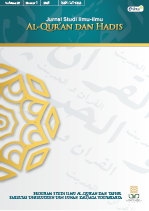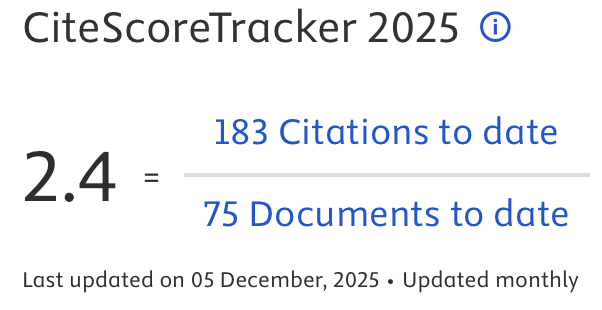STATE IDEALISM AND THE EMERGING DEMOCRATIZATION CHALLENGES OF INDONESIA POST-POLITICAL ELECTION IN ABU NASR AL-FARABI’S PARADIGM OF QUR’ANIC EXEGESIS
DOI:
https://doi.org/10.14421/qh.2021.2201-03Keywords:
Abu Nasr al-Farabi, madīnah al-fadhīlah al-sa’ādah, democratisation challengesAbstract
Over 11 centuries, Abu Nasr al-Farabi (d. 950) is well-known as a great philosopher and political scientist. Few studies have examined al-Mu'allim al-Ṡani’s capacity as a Qur’anic interpreter. Even though Al-Farabi has never written a complete Qur’anic exegesis book, he is noticed consistently paraphrasing verses of the Qur’an into political statements to justify the interrelatedness between Islamic political thought with Ancient Greek’s one which inspired from Plato and Aristotle. This characteristic is seen in some of his masterpieces as Arāyat Ahl al-Madīnah al-Faḍīlah and al-Siyāsah al-Madīnah. This paper seeks the potential adaptation of al-Farabi's idea about the ideal society, based on his alteration of Qur’anic verses into political concepts, as an alternative to fulfill the shortfall of Indonesian democracy. The article reflects al-Farabi's thoughts in the context of democratization challenges in Indonesia post-political campaign and suggested that its practice of democration is still considered as a "green" and imperfect form.
Keywords: Abu Nasr al-Farabi; madīnah al-fadhīlah al-sa’ādah, Democratization Challenges. Qur’anic Exegesis
 Abstract viewed: 636 times
|
Abstract viewed: 636 times
|
 PDF downloaded = 443 times
PDF downloaded = 443 times
 Al-Farabi (W. 950), Al-Qur'an dan Idealisme Negara: Kritik Terhadap Das Sein Demokrasi Di Indonesia Post-political Campaign downloaded = 0 times
Al-Farabi (W. 950), Al-Qur'an dan Idealisme Negara: Kritik Terhadap Das Sein Demokrasi Di Indonesia Post-political Campaign downloaded = 0 times
References
Abdullah, M. Amin. Islamic Studies di Perguruan Tinggi: Pendekatan Integratif-Interkonektif. Yogyakarta: Pustaka Pelajar, 2012..
Abdullah, M. Amin, Faiz Fahruddin, Al-Makin, Abdul Mustaqim, Suryadi, Akh. Minhaji, and Alim Roswantoro. Tafsir Baru Studi Islam dalam Era Multi Kultural. Yogyakarta: Panitia Dies Natalis IAIN SUKA dan Kurnia Kalam Semesta, 2002.
Abidin, Ahmad Zaenal. ‘Konsep Ketatanegaraan Islam menurut Al-Farabi dan Ayatullah Khumaeni’. Al-Mazaahib (Jurnal Perbandingan Hukum) 1, no. 2 (1 December 2012). http://ejournal.uin-suka.ac.id/syariah/almazahib/article/view/1355.
Alkhateeb, Firas. Lost Islamic History. London: Hurst & Company, 2017.
Al-Qurʾan dan Terjemahnya: Juz 1-Juz 30. I. Jakarta: Departemen Agama, Republik Indonesia, Proyek Pengadaan Kitab Suci al Qurʾan, 1992.
Amin, Ahmad. Al-Akhlaq. 3rd ed. Kairo: Al-Mashirah, 1931.
Anwar, Mohammad Thoha. Intensitas Generasi Muda Islam Dalam Mengembangkan Sikap Budaya Islam Di Tengah Masyarakat. Jakarta: Dirjen Pembinaan Kelembagaan Agama Islam, 1983.
Bukhari, Muhammad ibn Ismā‘īl al-. Shahih Al-Bukhari. Edited by Muhammad Muhsin Khan. 6 vols. Kitab Bhavan, 1987.
Bukier, Abdulla A. ‘Utopian Literature Of The Ideal Society : A Study In Al Farabi’s Virtuous City & More’s Utopia’. Majallah Al-Andalus 18, no. 5 (June 2018): 7–40. https://doi.org/ 10.35781/1637-000-018-009.
Chavarroa, Diego, Puay Tanga, and Ismael Ràfols. ‘Why Researchers Publish in Non-Mainstream Journals: Training, Knowledge Bridging, and Gap Filling’. Elsevier, Research Policy, 46, no. 1 (30 July 2017): 1666–1800.
Cheng, Joey T. ‘Dominance, Prestige, and the Role of Leveling in Human Social Hierarchy and Equality’. Current Opinion in Psychology, Power, Status and Hierarchy, 33 (1 June 2020): 238–44. https://doi.org/10.1016/j.copsyc.2019.10.004.
Cloke, Paul, Jon May, and Andrew Williams. ‘Postsecularities of Care: In-Common Ethics and Politics of “the Meantime(s)”’. Cities 100 (1 May 2020): 102667. https://doi.org/10.1016/ j.cities.2020.102667.
Dian, Yunardy. ‘Mengapa Gerakan Dan Politik Islam (Gemar) Melayani Kekerasan?’ In Agama Dan Negara: Jejak Persilangan Kekerasan, edited by Coen Husain Pontoh, 113–18. Yogyakarta: Resist Book, 2011.
Enginer, Ashgar Ali. Liberaliasasi Teologi Islam: Membangun Teologi Dalam dalam Islam terjemahan Rizqon Khamami. Translated by Rizqon Khamami. Yogyakarta: Alenia, 2004.
Farabi, Abū Nasir Muhammad bin al-Farakh al-. ‘Aflathūn wa Aristhāthālīs: Kitab al-Jam’u bayn al-Ra’y al-Hakīmainī’. In Majmu’at al-Falasifah li Abu Nar al-Farabi, edited by Muhammad Amin al-Khuli, I., 1–39. Mesir: As-Sa’adah, 1907.
———. Arayat Ahl Madinah wa Madha’iduh. Beirut: Maktabah Syarqiyyah, 1986.
———. Kitab al-Siyasah al-Madinah li Abi Nasr al-Farabi. Beirut: Dar Maktabah Hilal, n.d.
———. Tahshil al-Sa’adah. Beirut: Dar Maktabah Hilal, 1995.
———. ‘Uyūn al-Masāil’. In Al-Tsamrah al-Mardhi, 166. Kuwait: Kuwait Maḥkamat al-Tamyīz, 1890. http://ia601709.us.archive.org.
Hidayatullah, Syarif. ‘Relasi Agama Dan Sains Dalam Pandangan Mehdi Golshani’. Jurnal Filsafat 27, no. 1 (16 March 2018): 65–90. https://doi.org/10.22146.
Hussaini, Sayyed Hasan. ‘Islamic Philosophy between Theism and Deism’. Revista Portuguesa de Filosofia, Philosophical Contributions from the East to the West, 72, no. 1 (2016): 65–83.
Jaima, Amir R. ‘Africana Philosophy as Prolegomenon to Any Future American Philosophy’. Penn State University Press 32, no. 1 (2018): 151–67. https://doi.org/10.5325.
Katsir, Ibn. Tafsir al-Qur’an al-’Azhim. Edited by Hasan Abbas Qutb. Vol. 13. 15 vols. Kairo: Al-Faruq Al-Haditsiyyah, 2000.
Kementerian Pendidikan dan Kebudayaan Republik Indonesia, Badan Pengembangan dan Pembinaan Bahasa. ‘Kamus Besar Bahasa Indonesia Daring’. Pencarian Kata. KBBI Daring, 2016. https://kbbi.kemdikbud.go.id/entri/demokrasi.
Kester, Kevin, and Ashley Booth. ‘Education, Peace and Freire: A Dialogue’. Development 53 (1 December 2010): 498–503. https://doi.org/10.1057/dev.2010.86.
Khoshnaw, Mahmood N. ‘Alfarabi’s Conversion of Plato’s Republic’. Advances in Literary Study 02, no. 01 (2014): 5. https://doi.org/10.4236/als.2014.21002.
Langhade, Jacques. Du Coran a La Philosophie: La Langue Arabe et la Formation du Vocabulaire Philosophique de Farabi. Presses de l’Ifpo, 2014.
———. Min Al-Qur’an ila al-Falsafah: al-Lisan al-’Arabi wa Tukawwin al-Qamus al-Falsafi Ladai al-Farabi. Translated by Wajih As’ad. Damascus: Wizarah al-Tsaqafah, 1994.
Makhrus, M. ‘Pengaruh Plato (427-327 SM) dalam Pemikiran Filsafat Politik Al-Farabi (870-950)’. Skripsi, UIN Sunan Kalijaga, 2004. http://digilib.uin-suka.ac.id/26899/.
Maraghi, Ahmad Musthofa al-. Terjemah Tafsir Al-Maraghi. Vol. 6. Semarang: Toha Putra, 1987.
Mattson, Ingrid. The Story of the Qur’an: Its History and Place in Muslim Life. Oxford: John Wiley & Sons, 2012.
Merton, Robert K. ‘Science and the Social Order’. The University of Chicago Press Philosophy of Science 5, no. 3 (1938): 321–37.
———. The Sociology of Science: Theoretical and Empirical Investigations. Edited by Norman W. Storer. 0-2252092–7. Londok: The University of Chicago Pressq, 1973.
Munafò, Marcus R., Christopher D. Chambers, Alexandra M. Collins, Laura Fortunato, and Malcolm R. Macleod. ‘Research Culture and Reproducibility’. Trends in Cognitive Sciences 24, no. 2 (1 February 2020): 91–93. https://doi.org/10.1016/j.tics.2019.12.002.
Muraille, Eric. ‘Ethical Control of Innovation in a Globalized and Liberal World: Is Good Science Still Science?’ Endeavour, 27 February 2020, 100709. https://doi.org/10.1016/j.endeavour. 2020.100709.
Naziha, Nila Irdayatun. ‘Update Kasus Audrey: Begini Kondisi Terkini Korban hingga Perjalanan Hukum yang Ditempuh’. Tribun, 15 April 2019. tribunnews.com.
Nugroho, Yanuar. ‘Membangun Ekosistem Riset di Indonesia – Kantor Staf Presiden’. Portal Resmi. Kantor Staf Presiden, 20 February 2019. http://ksp.go.id/membangun-ekosistem-riset-di-indonesia/index.html.
Nurhamid, Ahmad. ‘Makna Al-Din Dalam Al-Qur’an: Studi Tematik Atas Tafsir Ibn Katsir’. Skripsi, UIN Sunan Kalijaga Yogyakarta, 2011. http://digilib.uin-suka.ac.id/5791/
O’Leary, De Lacy. Arabic Thought and Its Place in History. London: Kegan Paul Trench, 1963.
Orian Harel, Tal, Ifat Maoz, and Eran Halperin. ‘A Conflict within a Conflict: Intragroup Ideological Polarization and Intergroup Intractable Conflict’. Current Opinion in Behavioral Sciences 34 (1 August 2020): 52–57. https://doi.org/10.1016/j.cobeha.2019.11.013.
Pickthall, Marmaduke. The Meaning of the Glorious Qurʼan: Text and Explanatory Translation. Birmingham: Islamic Dawah Center International, 1983.
Ramsbotham, Oliver, Hugh Miall, and Tom Woodhouse. Contemporary Conflict Resolution. III. Cambridge: Polity, 2011.
Razi, Fakhr al-Din. Mafatih al-Ghaib. Edited by Syaikh Khalil al-Mais. Vol. 29. 32 vols. Beirut: Dar al-Fikr, 1981.
Rød, Espen Geelmuyden. ‘Fraud, Grievances, and Post-Election Protests in Competitive Authoritarian Regimes’. Electoral Studies 58 (1 April 2019): 12–20. https://doi.org/ 10.1016/j.electstud.2019.01.003.
Saltellia, Andrea, and Silvio Funtowicza. ‘What Is Science’s Crisis Really About?’ Elsevier, Futures, 91 (31 May 2017): 5–11.
Samir, Doha. ‘The Muslim Brotherhood’s Generational Gap: Politics in the Post-Revolutionary Era’. Arab Center for Research & Policy Studies, Moving Forward?, 1, no. 2 (2 August 2018): 32–52. https://doi.org/10.31430.
Scheppele, Kim Lane. ‘Autocratic Legalism’. Autocratic Legalism | The University of Chicago Law Review, The Limits of Constitutionalism – A Global Perspective, 85, no. 2 (March 2018): 545–84. https://doi.org/26455917.
Shihab, Moh Quraish. Tafsir al-Mishbah: pesan, kesan, dan keserasian al-Qur’an. V. 15 vols. Tanggerang: Lentera Hati, 2006.
Shihab, Quraish. Tafsir al-Mishbah: pesan, kesan, dan keserasian al-Qur’an. V. Vol. 12. 15 vols. Tanggerang: Lentera Hati, 2006.
Shofiyullah, Shofiyullah. ‘Praktek Demokrasi Di Indonesia Kontemporer Dalam Kritik Maqosidus Syariah’. TAJDID: Jurnal Ilmu Ushuluddin 14, no. 2 (2015): 223–50.
Soleh, Ahmad Khudori. Integrasi Agama dan Filsafat: Pemikiran Epistemologi Al-Farabi. I. Malang: UIN-Maliki Press, 2010.
Stine, Djørup. ‘Rediscovering the Scientific Ethos’. Thesis Ph.D, Københavns Universitet, 2015. forskningsdatabasen.dk.
Sudrajat, Ajat. ‘Demokrasi Pancasila dalam Perspektif Sejarah’, 17. gedung Ki Hajar Dewantara, Universitas Negeri Yogyakarta, 2015. journal.uny.ac.id.
Syafi’i, Muhammad. ‘Etika dalam Pandangan Al-Farabi’. Pascasarjana UIN Sunan Kalijaga 16, no. 2 (29 December 2017): 139–60.
Taufik, Egi Tanadi. ‘Al-Farabi (w. 950), Demokrasi, dan Wawasan Al-Qur’an: Harmonisasi Keberagaman Etnis, Agama dan Politik Di Indonesia’, 18. UIN Sunan Kalijaga Yogyakarta, 2018.
W, Pravitri Retno. ‘8 Poin Penting Sidang Perdana Kasus Ratna Sarumpaet, Awal Mula Sebar Foto hingga Mengaku Bersalah’. Tribun. 28 February 2019. www.tribunnews.com.
Weiler, Gershon. ‘What Is the Philosophy of Nationalism?’ Studies in East European Thought 46, no. 1 (1 June 1994): 119–28. https://doi.org/10.1007/BF01074772.
Yulianto, Hermawan. Electoral Politics in Indonesia: A Hard Way to Democracy. Electoral Politics in Southeast and East Asia. Croissant, 2002. library.fes.de/pdf-files/iez/01361004.pdf.
Yusuf, Abdul Wadud. Tafsir al-Mu’minun. Vol. II. Beirut: Dar Kutb al-’Ilmiyyah, 1996.
Downloads
Additional Files
Published
How to Cite
Issue
Section
License
Publishing your paper with Jurnal Studi Ilmu-ilmu al-Qur'an dan Hadis means that the author or authors retain the copyright in the paper. Jurnal Studi Ilmu-ilmu al-Qur'an dan Hadis uses license CC-BY-NC-ND or an equivalent license as the optimal license for the publication, distribution, use, and reuse of scholarly works. This license permits anyone to copy and redistribute the material in any medium or format and must give appropriate credit, provide a link to the license, and indicate if changes were made. If you remix, translate, transform or build upon the material you may use it for private use only and not for distribution. Jurnal Studi Ilmu-ilmu al-Qur'an dan Hadis granted an exclusive non-commercial reuse license by the author(s), but the author(s) are able to put the paper onto a website, distribute it to colleagues, give it to students, use it in your thesis, etc, so long as the use is not directed at a commercial advantage or toward private monetary gain. The author(s) can reuse the figures and tables and other information contained in their paper published by Jurnal Studi Ilmu-ilmu al-Qur'an dan Hadis in future papers or work without having to ask anyone for permission, provided that the figures, tables, or other information that is included in the new paper or work properly references the published paper as the source of the figures, tables or other information, and the new paper or work is not direct at a private monetary gain or commercial advantage.
Jurnal Studi Ilmu-ilmu al-Qur'an dan Hadis journal Open Acces articles are distrubuted under the Creative Commons Attribution-NonCommercial-NoDerivatives 4.0 International (CC BY-NC-ND 4.0). Article can be read, copy and redistribute the material ini any medium or format under the following conditions:
Attribution — You must give appropriate credit, provide a link to the license, and indicate if changes were made. You may do so in any reasonable manner, but not in any way that suggests the licensor endorses you or your use.
NonCommercial — You may not use the material for commercial purposes.
NoDerivatives — If you remix, transform, or build upon the material, you may not distribute the modified material.










